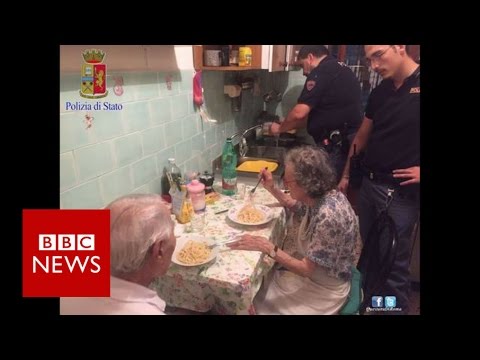There’s an epidemic of loneliness stretching across the world. Self reliance shouldn’t mean toughing it out and going it alone because you’re widowed, or solo. Let’s remember we must help those who can’t always help themselves. Even if it’s only a smile, wave or hello that they need.
The woman on the other end of the phone spoke lightheartedly of spring and of her 81st birthday the previous week, reports the New York Times.
“Who did you celebrate with, Beryl?” asked Alison, whose job was to offer a kind ear.
“No one, I…”
And with that, Beryl’s cheer turned to despair.
Her voice began to quaver as she acknowledged that she had been alone at home not just on her birthday, but for days and days. The telephone conversation was the first time she had spoken in more than a week.
About 10,000 similar calls come in weekly to an unassuming office building in this seaside town at the northwest reaches of England, which houses The Silver Line Helpline, a 24-hour UK call center for older adults seeking to fill a basic need: contact with other people.
As you see in the video, the old couple in Italy contacted emergency services because they were lonely and need human interaction.
Earlier this month, Katie Hafner in the New York Times article mentioned above, reported that in Britain and the United States, roughly one in three people older than 65 live alone. In the United States, half of those older than 85 live alone. Studies in both countries show the prevalence of loneliness among people older than 60 ranging from 10 percent to 46 percent.
While not a physical sickness in and of itself, chronic loneliness can also be detrimental to physical health. Several studies show that social isolation or feelings of loneliness can lead to an increased risk for heart disease, high blood pressure, stroke and even an earlier death. Loneliness affects several key bodily functions, at least in part through overstimulation of the body’s stress response. Chronic loneliness is associated with increased levels of cortisol, a major stress hormone, as well as higher vascular resistance, which can raise blood pressure and decrease blood flow to vital organs.
If you live in the USA and are lonely, you should check out the Institute on Aging’s 24-hour toll-free Friendship Line. It’s the only accredited crisis line in the country for people aged 60 years and older, and adults living with disabilities. Here’s the website. Here is their National phone number: National – 800.971.0016
They also make on-going outreach calls to lonely older adults. While there are other organizations that respond to the needs of people who may be contemplating suicide, none provides the type of services that IOA’s Friendship Line offers to respond to the public health problem of suicide among the elderly. Knowing that older people do not contact traditional suicide prevention centers on a regular basis even if they are considering suicide, they created the only program nationwide that reaches out to lonely, depressed, isolated, frail and/or suicidal older adults. Their trained volunteers specialize in offering a caring ear and having a friendly conversation with depressed older adults.

